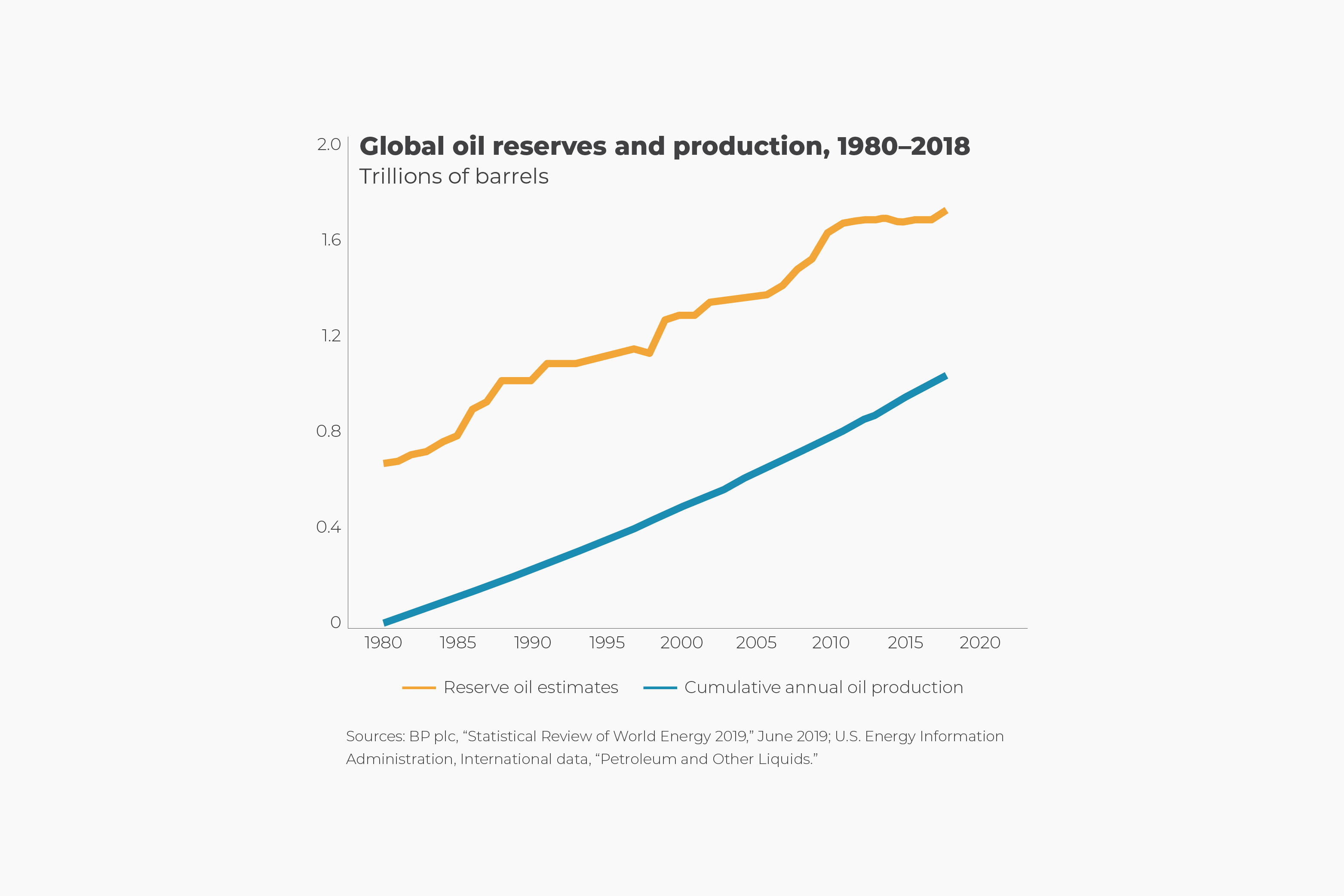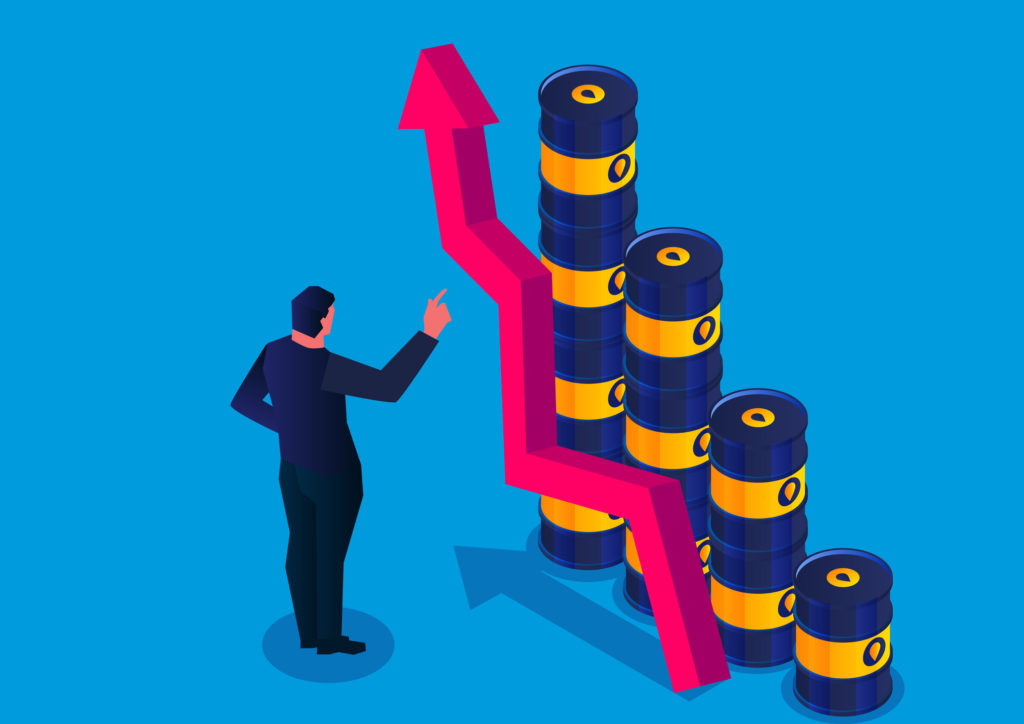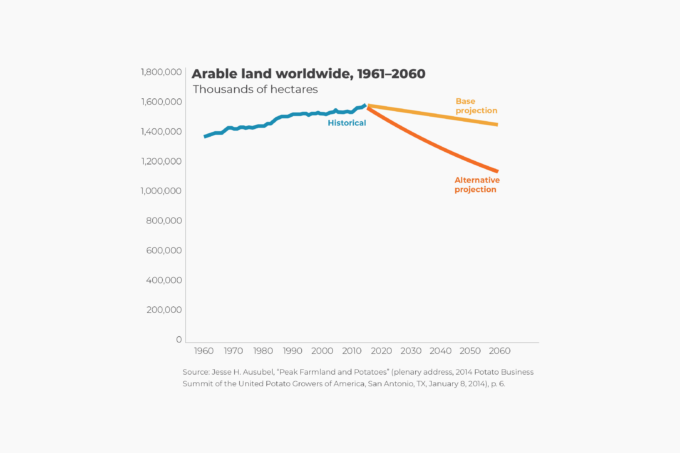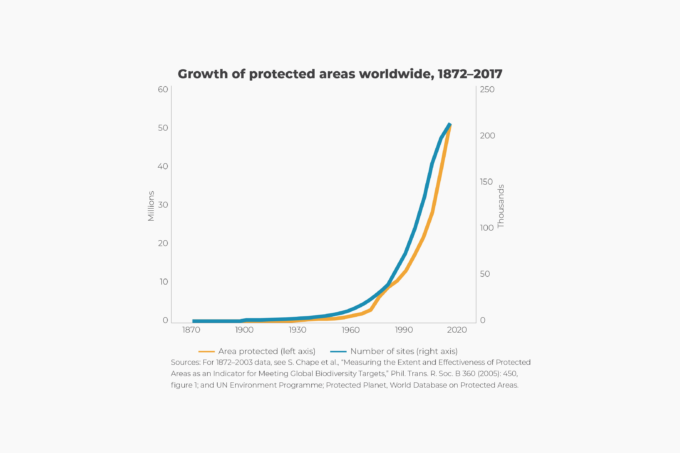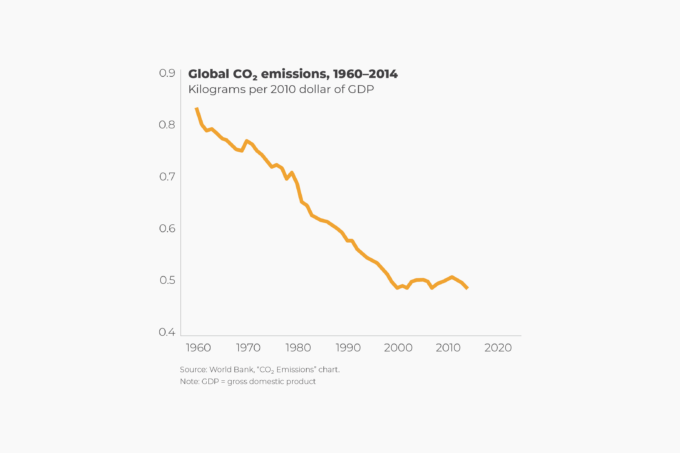As reliance on petroleum as a source of energy grew over the past century and a half, predictions that humanity was about to run out of its limited supply multiplied. For example, David White of the U.S. Geological Survey warned in 1919 that world oil production would peak in just nine years. Nearly a century later, Princeton University geologist Ken Deffeyes predicted that the peak of global oil production would occur on Thanksgiving Day 2005.
Instead, global production of crude oil has been steadily rising, from an average of approximately 32 million barrels per day in 1965 to 95 million in 2018. Predictions that world reserves were about to peak and begin declining have also proved wrong. In the wake of the 1970s oil crises, global proven reserves in 1980 were estimated at 684 billion barrels. That year, the world was pumping 23 billion barrels of crude oil annually. By implication, only 30 years of oil was left to be extracted.
Instead of running out, however, the world has pumped 983 billion barrels of oil since 1980. Meanwhile, proven reserves of crude oil have nearly tripled, to 1.7 trillion barrels. In 2017, the world produced 35 billion barrels of oil. At that rate, humanity would run out of oil in 50 years.
In 2000, Saudi Arabian oil minister Ahmed Zaki Yamani famously declared, “The Stone Age came to an end not because we had a lack of stones, and the oil age will come to an end not because we have a lack of oil.” That dictum is looking prescient. Some researchers—including those at the Oxford Institute for Energy Studies—have recently shifted from predicting peak supply of oil to instead now forecasting peak demand for petroleum sometime in the next 20 to 30 years.

